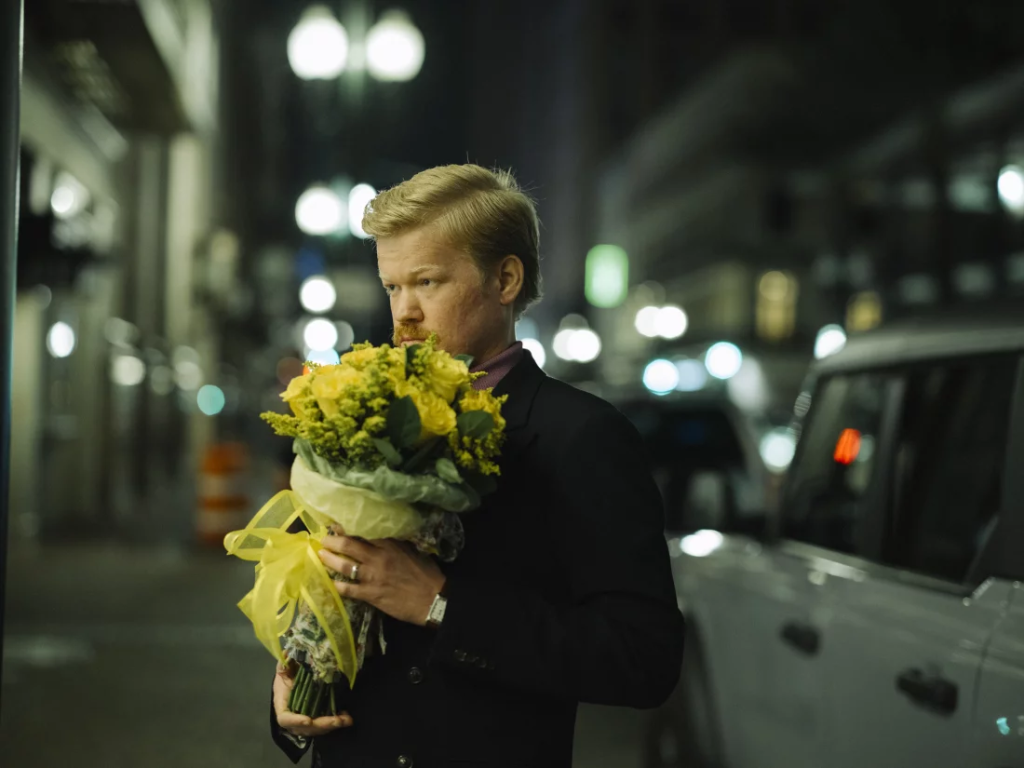
In Kinds of Kindness, Yorgos Lanthimos takes us down a dark and winding path where kindness isn’t just a virtue—it’s a weapon. His latest film weaves together three stories that explore how seemingly selfless acts can mask manipulation, cruelty, and the fight for survival. This isn’t the absurdist Lanthimos we’re used to, though. There’s a coldness here that feels both unsettling and hypnotic. The question is: Does Lanthimos successfully pull off this intricate maze of themes through a chilling anthology of three interconnected stories, or does he lose himself in his own symbolism?
The first story is about a man whose obsessive need for validation from his tyrannical boss leads him down a morally and emotionally devastating path. The second narrative shifts to a police officer grappling with the shocking reappearance of his wife after years of presumed loss, only to spiral into paranoia and desperate attempts to preserve his fractured sense of normalcy. The final chapter follows a woman entangled in a cult, facing the impossible demand of proving her worth by searching for someone with extraordinary abilities, forcing her to confront both her own limits and the cost of blind devotion.
Lanthimos’s talents are on full display in the first story, with the suffocating atmosphere, oppressive control, and psychological tension building like a slow burn. Jesse Plemons, as a quietly sinister figure, offers a standout performance, playing a character who could be both a victim and a predator. His portrayal perfectly captures the madness of being trapped in a system that forces you to surrender your sense of self in exchange for validation. It’s uncomfortable, unnerving, and brilliant—exactly what Lanthimos does best.

The second chapter, however, stumbles. On the surface, it seems like a taut psychological study of a man unhinged by uncertainty, but the execution feels hollow. It’s as though the film is trying too hard to connect dots that don’t really lead anywhere meaningful, leaving you with a sense of emptiness rather than insight.
Then there’s Emma Stone’s character in the final segment, which is the most compelling until the narrative shifts a bit to focus on the cult’s rules and rituals, overshadowing any emotional depth Stone’s character could have explored. The film’s obsession with world-building makes it hard to connect with the people within it, leaving Stone’s performance underused. The character’s internal struggle, which could have been rich and layered, becomes lost in the background noise of the narrative.
At 160 minutes, Kinds of Kindness begins to buckle under its own weight. The anthology structure, while ambitious, feels more like a collection of disconnected ideas than a coherent whole. Lanthimos’s trademark deadpan humor and clinical approach to violence—sudden, brutal, and unsettling—are still present, but at times, they come across as repetitive and self-indulgent. The detached, almost robotic delivery of horrific moments loses its shock value, making you wonder if it’s still serving the story or if it’s just a stylistic crutch.

Ultimately, Kinds of Kindness is a film of contradictions. It’s too long, too complex at times, and its structure doesn’t always serve its themes. But beneath the surface, there’s something deeply unsettling about the way Lanthimos explores the boundaries of compassion, control, and identity. Whether through cult dynamics, professional hierarchies, or intimate relationships, Lanthimos highlights how the act of giving can be used to exploit others. The film might not be as tight or cohesive as some of his earlier works, but its unsettling, haunting examination of human connection lingers. It’s a film that tries—whether it succeeds or not—to make you reconsider what kindness really means and how far we might go to obtain it.
Rating: ★★★★★★☆☆☆☆ (6.5/10)
